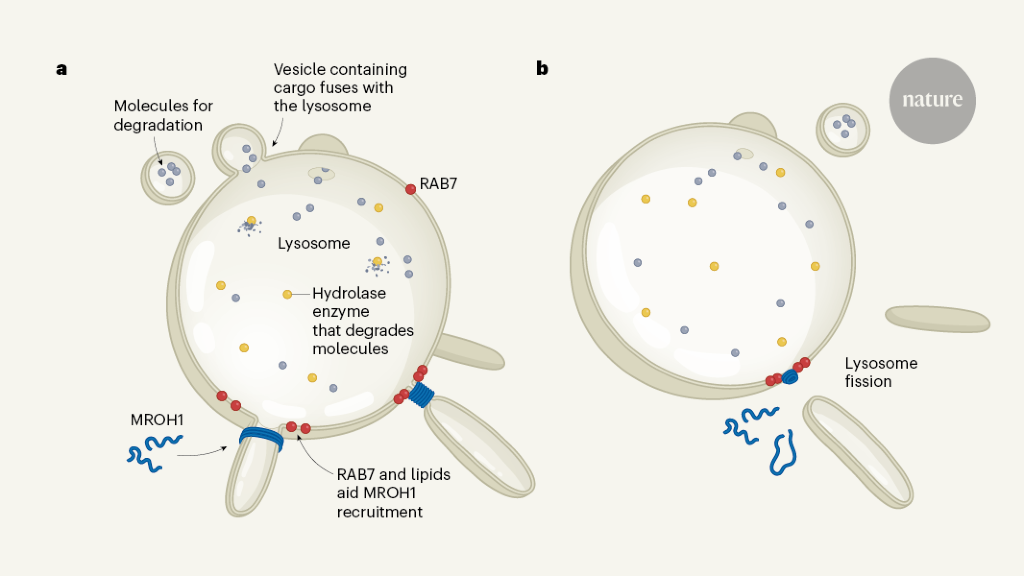Grunnleggende konsepter
Lysosomal fission mechanisms are being uncovered.
Sammendrag
Lysosomes play a crucial role in cellular functions by degrading molecules and proteins. They are also essential for maintaining cellular quality control. The process of fission, which releases membrane-bound material from lysosomes to balance their size, has been a mystery until now. Li et al. have identified components that mediate lysosomal fission, shedding light on this crucial process.
Tilpass sammendrag
Omskriv med AI
Generer sitater
Oversett kilde
Til et annet språk
Generer tankekart
fra kildeinnhold
Besøk kilde
www.nature.com
The race to uncover fission factors for lysosomal organelles heats up
Statistikk
Lysosomes are acidic organelles involved in degrading molecules and proteins.
Fusion of cargo-containing vesicles with lysosomes is well understood.
Mechanisms enabling the release of material through fission from lysosomes have been elusive.
Li et al. reveal components mediating lysosomal fission.
Sitater
"Writing in Nature, Li et al. reveal components that mediate lysosomal fission."
Viktige innsikter hentet fra
by Shilpa Gopan klokken www.nature.com 03-27-2024
https://www.nature.com/articles/d41586-024-00851-w
Dypere Spørsmål
What implications could understanding lysosomal fission have on treating diseases related to lysosomal dysfunction?
Understanding lysosomal fission could have significant implications for treating diseases related to lysosomal dysfunction. Dysfunctional lysosomes are implicated in various disorders, such as lysosomal storage diseases, neurodegenerative diseases, and cancer. By elucidating the pathways and mechanisms involved in lysosomal fission, researchers can potentially develop targeted therapies to modulate this process. This could lead to the development of novel treatment strategies aimed at restoring lysosomal function and alleviating the symptoms associated with lysosomal dysfunction.
What challenges might researchers face in targeting lysosomal fission for therapeutic interventions?
Researchers may face several challenges in targeting lysosomal fission for therapeutic interventions. One major challenge is the complexity of the lysosomal fission process itself, as it involves a coordinated interplay of various components and mechanisms. Identifying specific targets for intervention and developing drugs that can selectively modulate lysosomal fission without disrupting other cellular processes can be challenging. Additionally, ensuring the safety and efficacy of potential therapeutics targeting lysosomal fission will require thorough preclinical and clinical testing to assess their impact on cellular function and overall health.
How can the discovery of lysosomal fission components impact our understanding of cellular maintenance and quality control mechanisms?
The discovery of lysosomal fission components can significantly impact our understanding of cellular maintenance and quality control mechanisms. Lysosomes play a crucial role in maintaining cellular homeostasis by degrading unwanted molecules and proteins, as well as regulating signaling pathways. The identification of components involved in lysosomal fission can provide insights into how cells regulate the size and function of lysosomes to ensure proper cellular maintenance. This discovery can also shed light on how cells maintain quality control mechanisms by efficiently removing damaged organelles and proteins through lysosomal degradation pathways. Overall, understanding lysosomal fission components can deepen our knowledge of cellular processes essential for maintaining cellular health and function.
0
